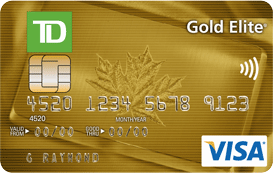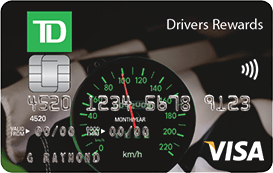
Canadian Banking System
By:Ramanjeet Virdi

Type of Business Ownership- Corporation
Current Stock Price-$54.00 Canadian Dollars
Total Assets-$811 billion
Most Recent Profit-$1.7 Billion
Global Operations-
Barbados
Canada
United States
Amsterdam, The Netherlands
Dublin, Ireland
Luxembourg
United Kingdom
Sydney, Australia
Hong Kong
Mumbai, India
Seoul, South Korea
Shanghai, China
Singapore
Number of Branches- 1100
Hours Open- Weekdays: 8:00-8:00 Saturday: 8:00-4:00 Sunday: 11:00-4:00
Number of ATMS- 2800
Members Of CIDC-TD Mortgage Corporation, TD Pacific Mortgage Corporation
TD Bank- General Information
Acounts and Fees
Savings
When opening a savings account there are a few things to know about it. Firstly there is a minimum balance of $1000. Luckily there is no monthy maintanence charges so no money will be taken away from the account monthly. But for certain accounts, such as the student accounts there is no minimum balance and no monthly fees. As for the other fees, their are fees but only if certain things are done. If withdrawing from a savings account which does not have any money in it, obviously there will be fees added. This is known as overdraft fees. TD bank also has cheques fees, it adds a small fee for cheques deposited.These fees are a fixed amount that is paid every month. Certain accounts can have different amounts of fees depending on what type of account it is.
Chequing
When opening a chequing account it also varies on which specific account you open. Chequing accounts minimum balnces can be from $0, which would be a student acount, to $250, which is a premier account. For chequing monthly fees, these as well can vary depending on the account. They can start at $5.99 to $25 a month. The monthly fees, just like the minimum balace, can be $0 if it is a student account. Finally for the fees, they are the same as the savings account. There are fees fo certain things, which include,withdrawing from a savings account which does not have any money in it fees will be included. TD bank also has cheques fees, it adds a small fee for cheques deposited.These fees are a fixed amount that is paid every month. Certain accounts can have different amounts of fees depending on what type of account.
Credit Cards
At TD, there is a number of different credit cards that can be obtained. These include:
-TD Aeroplan Visa Infinite Card- Includes:
15000 Aeroplan Miles
Annual fees of $120
Purchases 19.99%
Cash Advances 22.99%
TD Aeroplan Visa Platinum Card- Includes:
10000 Aeroplan miles
Annual fees of $89
Purchases 19.99%
Cash Advances 22.99%
TD Aeroplan Visa Infinite Privilege Card- Includes:
25000 Aeroplan miles
Annual fees of $399
Purchases 19.99%
Cash Advances 22.99%
TD Aeroplan Visa Business Card- includes:
20000 Aeroplan miles
Annual fees of $149
Purchases 14.99%
Cash Advances 22.99%
TD First Class Travel Visa Infinite Card- Includes:
20000 TD points
Annual fees of $99
Purchases 19.99%
Cash Advances 22.99%
TD Platinum Travel Visa Card- Includes:
15000 TD Points
Annual fees of $99
Purchases 19.99%
Cash Advances 22.99%
TD Classic Travel Visa Card- Includes:
2000 TD Points
Annual fees of $19
Purchases 19.99%
Cash Advances 22.99%
TD Gold Elite Visa Card- Includes:
1% cash rebate on everyday purchases
Annual fees of $99
Purchases 19.99%
Cash Advances 22.99%
TD Cash back MasterCard Card
0.75% cash back without an annual fee.
Annual fees of $0
Purchases 19.99%
Cash Advances 22.99%
TD Drivers Rewards Visa Card- Includes
Earn up ro 2% in TD Drivers Rewards Points on every purchase
Annual fees of $0
Purchases 19.99%
Cash Advances 22.99%
All of these card can be categorized in a few different groups, Aeroplan miles, travel rewards, cash back rewards, no anual fees, low rate, and U.S Dollar.










Investments
Say $25000 where inherited to you for your education funds, at TD bank you could invest it into several different accounts. The first of which being the Education Saving Plan - RESP. This is an accoutn that helps you save money for your childs of your own post-secondary education. What so special about this plan is the government actually helps pay by adding to the savings account with grant money. The second Investment plan that could be used is just a normal savings account. A savings account could be very helpful especially because all banks gave a special offer for students. Being post-seconday makes you a student therefore the savings acount wouldn't have a minimum balance or any monthly fees. Usefull for keeping money stored awway without even having to pay for unnecessary funds. The final is the Precious Metals, Bonds 7 Money Market. This option gives you bonds which can be sold at market value at any time. These bonds are also very low-risk for they can not be used by anyone other then you unless under your permission. All three of these options would be good reliable ways to keep the inherited money safe untill it is needed in post-secondary.
Other Credit
In this section we will be talking about the types of credit, interest rates offered, and pretty much any other information about the loans, lines of credit, and mortgages that TD bank offers. First of the three are loans. At TD bank there are several types of loans you can apply for, these include auto loan, on-the-spot RSP loan, Carryforward RSP Loan, and personal loan. Auto loans are if a loan is needed for vehicle, the maximum principle amount depends on the vehicle, and the rate of the interest is a fixed rate meaning the rate wont change over time. Also for fees there is only a security registration fee which depends on the province. An on-the-spot RSP loans is when you need a loan to take advantage of your unused RSP contribution room. The maximum principal amount is up to your unsued RSP contribution room that year. Once again the rate of intrest is a fixed rate that does not change. Other details to know are payments defer for up to 120 days, also it must be paid back within the 1-year term. As for fees, there are none. The next ids Carryforward RSP loan which is the same thing as the on-the-spot RSP loans, except the maximum principle amount can be up to $50000. Once again the rate of interest is fixed. Some other details are like the other loan the payments defer for up to 120 days, and the loan must be paid back within a 1-10 year term choice. Also like the on-the-spot RSP loan there are no fees. The liquid secured loan is if you currently have eligible investments that you do not want to sell this is the loan that you should get. The maximum principle amount depends on the investment and the fee is a sercurity registration fee, the amount of which depends on the province. The final type of loan is the personal loan which is a loan for personal reasons, they can be used for several different things as they are the most common type of loan. This loans maximum principle amount is like the Carryforward RSP loan, it can be up to $50000. Also this type of loan does not have any fees. The rate of intrest for this is like all the others, a fixed rate which will not change over time.
The next of the three is the lines of credit. There are 4 types of lines of credit, they are, Personal line of credit, home equity line of credit, student line of credit, and Invesment secured line of credit. All of these lines of credits have the same rate which is dependant on TD Prime rate. First of the 4 is personal line of credit. This is a line of credit for anyone. Its credit limit is up to $50000. The minimum payment is pay as little as the minimum monthly payment requirements as set out in your Line of Credit Agreement, or any greater amount up to the entire balance. Also for this line of credit there are no fees. The next line of credit is home equity line of credit, this is a line of credit in which you want a lower rate on your home, you can use the equity you have built up in your home to secure a line of credit. The credit limit is borowing an amount the same as the value of your home. The minimum payment is up to you, you get to choose how much, at your own pase. THe fees for this line of credit have to be set up when applying for this line of credit.The next one is student line of credit, which is line of credit for students meaning it has a low interest rate. The credit limit for this line of credit is $40000 for undergradutates, and $250000 for professional students. The minimum payment is monthly interest only payments while in schoo for up to 12 months after. After that, pay the greater of $50 or 1% of the outstanding balance each month or any amount greater. There are no fees for this line of credit. The final line of credit is the invesment secured line of credit. which is when you have eligible investments and want a low rate. The credit limit dependant on the investment, borrow up to 100% of the value of your eligible investments. The minimum payment is paying the greter of interest only or $50.
3% of the outstanding balance upon customer request. For the fees, there is only one which is security registration fee which depends on the province.
The final of the three is mortgages. There are 4 types of mortgages, closed, convertible, open and cash back.
Closed
Convertible
1 Year
2.990%
2 Year
2.940%
3 Year
3.440%
4 Year
3.940%
5 Year
4.790%
6 Year
5.960%
7 Year
6.040%
10 Year
6.500%
6 Month
3.140%
Open
1 Year
6.300%
Cash Back
5 Year
4.790%
6 Year
5.960%
7 Year
6.040%
10 Year
6.500%
Other Services
At TD bank it is indeed possible to do online banking. It also has several tools that can help you perform specific things. One of those being the toolkit which analyzes understands your options, it creates a plan, and performs a wide range of calculations. TD bank also offers bank drafts, which are alternatives for writinig cheques or opening a foreign currency account. You must have a TD Canada Trust account in order to pay for a bank draft by cash, personal cheque or direct debit from your account. These are not the only offers of TD bank, there is also direct deposits, these are fast and convinent ways of accessing your money. With Direct Deposit, your money is immediately available to you no matter what you're doing or where you are. TD bank also has saftey deposit boxes which is an individually secured container, usually held within a larger safe or bank vault.